
Werner Herzog is a German filmmaker, actor, opera director, and author. Regarded as a pioneer of New German Cinema, his films often feature ambitious protagonists with impossible dreams, people with unusual talents in obscure fields, or individuals in conflict with nature. His style involves avoiding storyboards, emphasizing improvisation, and placing his cast and crew into real situations mirroring those in the film they are working on.
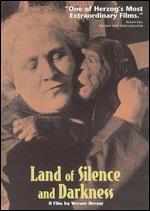
Land of Silence and Darkness is a 1971 documentary film about deaf-blind people and their experience of life. The film was written, directed, and produced by Werner Herzog. Rolf Illig provided narration.

How Much Wood Would a Woodchuck Chuck is a 1976 documentary film by German director Werner Herzog, produced by Werner Herzog Filmproduktion. It is a 44-minute film documenting the World Livestock Auctioneer Championship held in New Holland, Pennsylvania. The film also contains a section about the Amish and shows Amish speaking Pennsylvania German.

The Great Ecstasy of Woodcarver Steiner is a 1974 documentary film by German filmmaker Werner Herzog. It is about Walter Steiner, a celebrated ski jumper of his era who worked as a carpenter for his full-time occupation. Showcased is Steiner's quest for a world record in ski flying, as well as the dangers involved in the sport. Herzog has considered it one of his "most important films."
![<i>Herdsmen of the Sun</i> 1989 [[West Germany]] film](https://upload.wikimedia.org/wikipedia/en/thumb/1/18/Wodaabe_herdsman.jpg/320px-Wodaabe_herdsman.jpg)
Herdsmen of the Sun is a 1989 documentary film by Werner Herzog. The film explores the social rituals and cultural celebrations of the Saharan nomadic Wodaabe tribe. Particular focus is given to the Gerewol celebration, which features an elaborate male beauty contest to win wives.
Game in the Sand is an unreleased short film written and directed by Werner Herzog in 1964. The plot concerns four children and a rooster in a cardboard box, and includes a scene where the chicken is buried in sand up to its neck. Very little information about the film and its production is known.
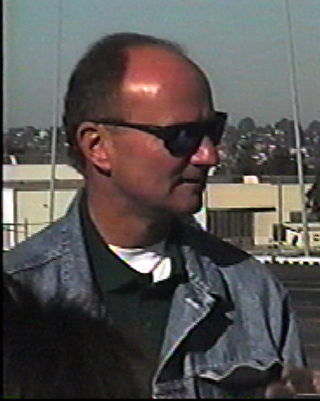
Hartwolf "Lucki" Stipetić is a German film producer, and the younger half brother of filmmaker Werner Herzog. Stipetić is the official head of Werner Herzog Filmproduktion, the production company which has produced almost all of his brother's films.

The Unprecedented Defence of the Fortress Deutschkreuz is a 1967 short film by Werner Herzog filmed in 1966 in Deutschkreutz, Austria. Herzog's official website describes the film as "a satire on the state of war and peace and the absurdities it inspires.
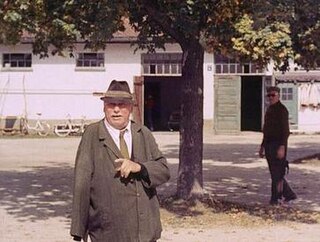
Precautions Against Fanatics is a short film by Werner Herzog filmed at a harness racing track near Munich, Germany. It was Herzog's first film shot in color.
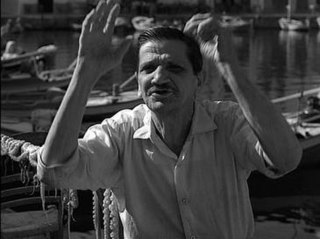
Last Words is a 1968 short film by Werner Herzog shot in Crete and on the island of Spinalonga. The film was shot in two days during the filming of Herzog's feature Signs of Life, and edited in one day.

The Flying Doctors of East Africa is a 1969 documentary film by Werner Herzog about the "flying doctors" service of the African Medical and Research Foundation in Tanzania and Kenya. The film is a fairly conventional documentary made during the filming of Herzog's more stylized films Fata Morgana and Even Dwarfs Started Small.

Portrait Werner Herzog is an autobiographical short film by Werner Herzog made in 1986. Herzog tells stories about his life and career.

Handicapped Future is a 1971 documentary film by Werner Herzog about physically disabled children in Munich.
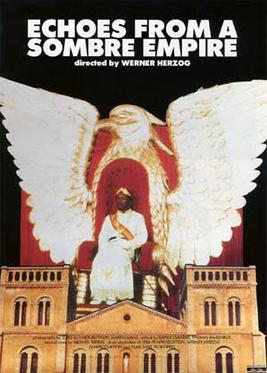
Echoes From a Sombre Empire is a documentary film by Werner Herzog about Jean-Bédel Bokassa.
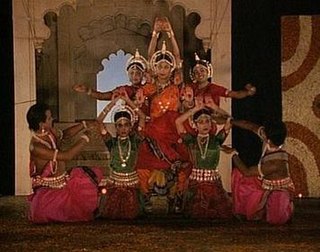
Jag Mandir, sometimes known by its subtitle, The Eccentric Private Theatre of the Maharaja of Udaipur, is a 1991 documentary film directed for television by Werner Herzog. The bulk of the film consists of footage of an elaborate theatrical performance for the Maharaj Arvind Singh Mewar at the City Palace of Udaipur, Rajasthan staged by André Heller.

Ballad of the Little Soldier is a 1984 documentary film directed by Werner Herzog and Denis Reichle about child soldiers in Nicaragua. The film focuses on a group of Miskito Indians who used children soldiers in their resistance against the Sandinistas.

Scream of Stone is a 1991 film directed by Werner Herzog about a climbing expedition on Cerro Torre. The film was shot on location at Cerro Torre, with several scenes filmed close to the summit.
Pilgrimage is a 2001 documentary film by Werner Herzog. Accompanied only by music the film alternates between shots of pilgrims near the tomb of Saint Sergei in Sergiyev Posad, Russia and pilgrims at the Basilica of Guadalupe in Mexico. The score was composed by John Tavener and performed by the BBC Symphony Orchestra with vocal accompaniment by Parvin Cox and the Westminster Cathedral Choir. The film begins with a supposed quote by Thomas à Kempis, invented by Herzog.

Ten Thousand Years Older is a 2002 documentary film by Werner Herzog about the Amondauas people of Brazil. The ten-minute film was produced and included as part of the Ten Minutes Older project, released in the collection The Trumpet.
La Bohème is a 2009 short film directed by Werner Herzog. The four-minute film features images of life in Ethiopia set to the duet "O soave fanciulla" from Puccini's opera La bohème, sung by Peter Auty and Mary Plazas. It was part of a series of short films commissioned by Sky Arts and English National Opera.





![<i>Herdsmen of the Sun</i> 1989 [[West Germany]] film](https://upload.wikimedia.org/wikipedia/en/thumb/1/18/Wodaabe_herdsman.jpg/320px-Wodaabe_herdsman.jpg)











